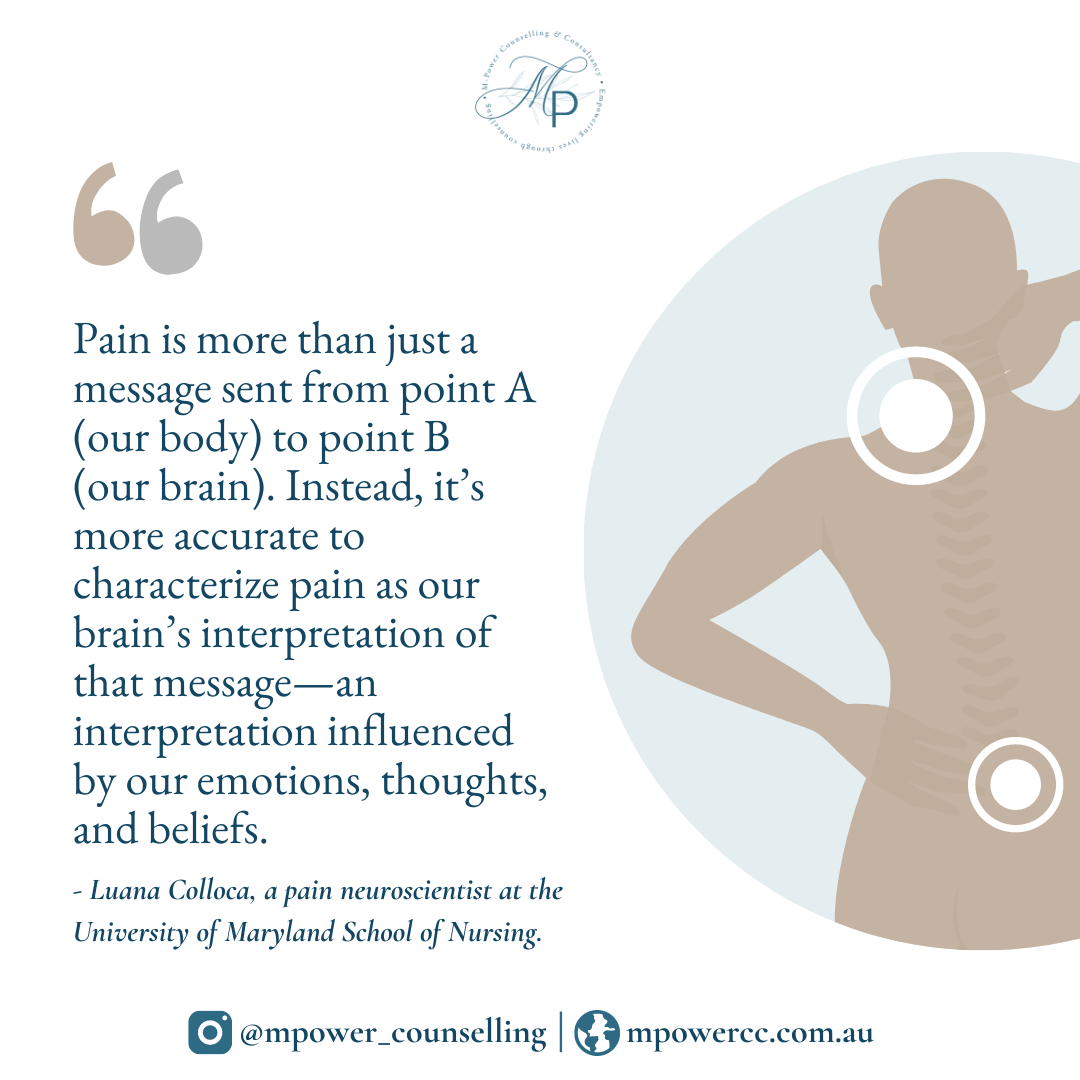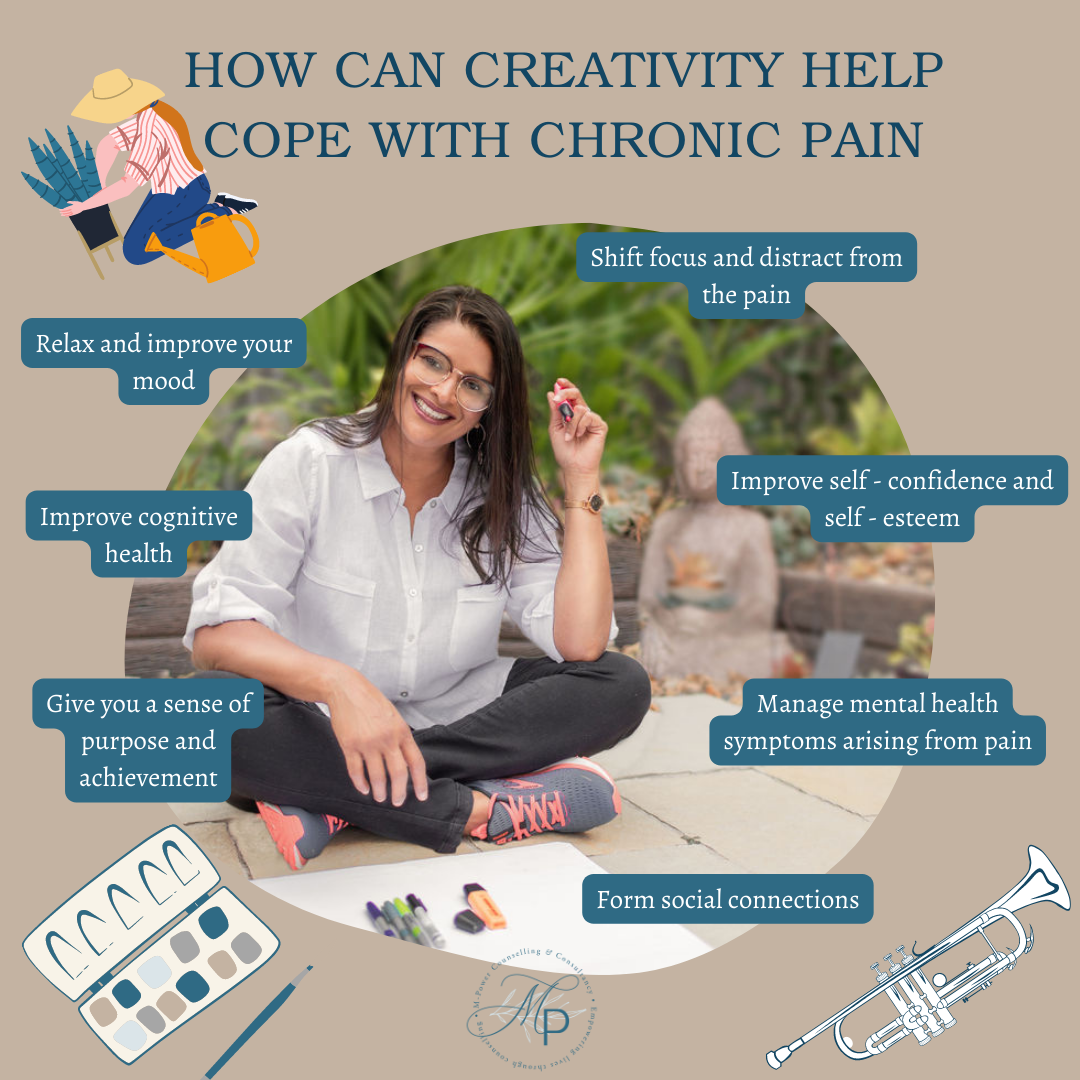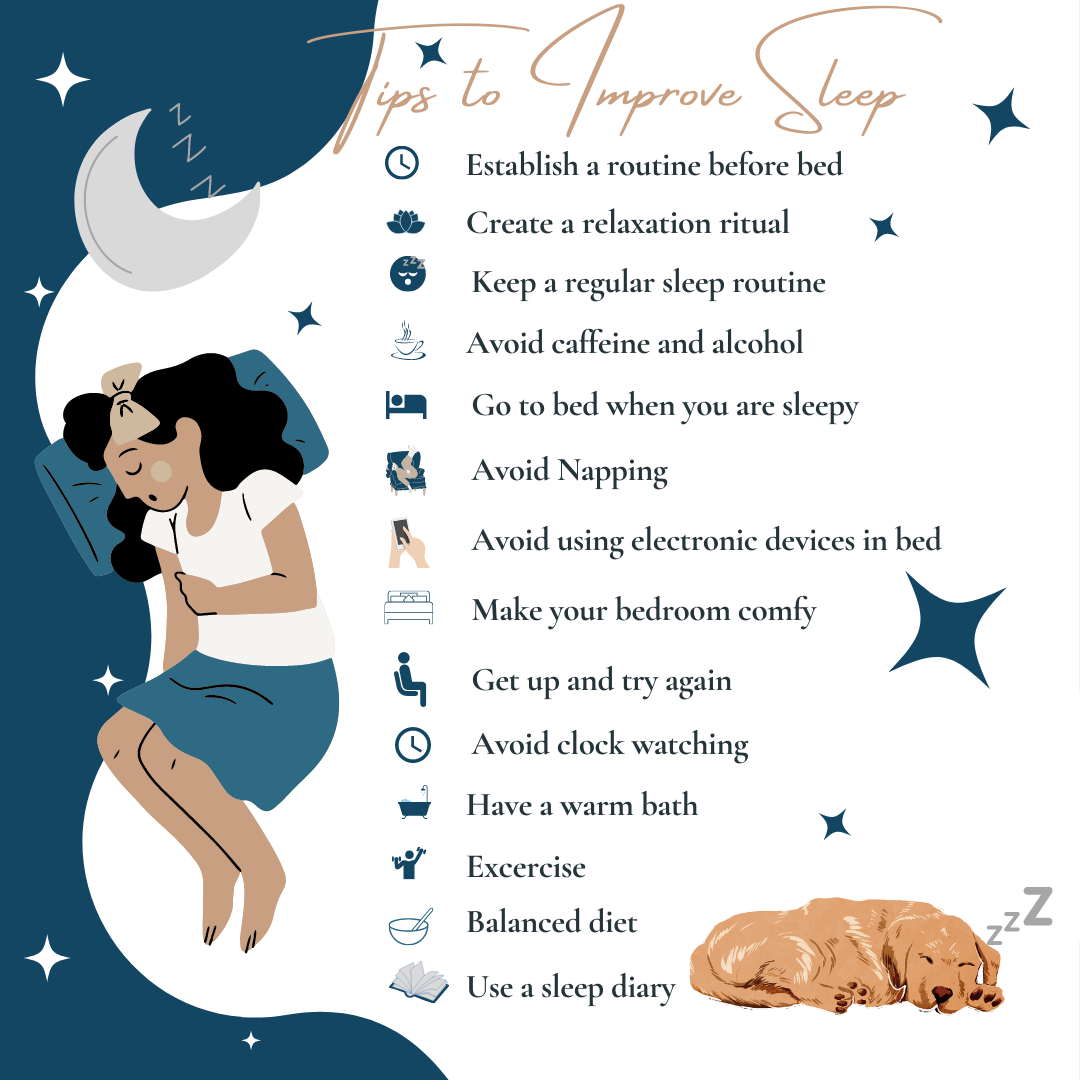As science tells us, pain is produced by our brain and sometimes our brain can become hypersensitive to pain, sounding false alarms of any tissue damage resulting in chronic pain. Research has shown that whilst we may not be able to get rid of pain, we can nurture our brain with positive emotions, thoughts, and beliefs which can help turn down the volume of chronic pain allowing for a more purposeful and meaningful life.
Here are some tips to get you started:
- Gratitude Journal: It may seem hard to find reasons to be thankful for when are in pain. However, studies have shown that practising gratitude can have a profound effect on overall pain levels as it encourages positive emotions. A simple way to get started is to keep a gratitude journal and start with one good thing you a grateful for when you wake up in the morning, or before you go to bed at night.
- Mindfulness and Meditation: Mindfulness and meditation activates the parasympathetic nervous system resulting in your muscles relaxing, heart rate and breathing slowing down and your blood pressure reducing, bring about a state of complete relaxation to your body and mind which in turn can improve your health, wellbeing, and chronic pain.
- Maintaining a daily routine: People experiencing chronic pain go from having a well-established routine encompassing all aspects of their life, to experiencing a gradual withdrawal because of their chronic pain. Slowly re-engaging into a daily routine can have huge benefits to your health, wellbeing, and pain levels, as well as the people around you. Start small by introducing one new routine a couple of times a week and finding the right balance that works for you. Remember to pace yourself, love yourself and be accepting of your limitations.
- Find purpose to life: Whilst, you may think chronic pain has striped you of your life’s meaning and purpose, it does not have to be so. You can re-define your purpose in life – get creative and think outside the box, explore your values, what you stand for, what do you want for yourself and what action you can take to make it happen. Stay open to growing and evolving with chronic pain and most importantly be kind to yourself.
- Engaging with the community: We are social beings and relationships are an integral part of our health and wellbeing. Pain can have a significant impact on our relationships sometimes causing social isolation. So, re-establish your relationships and to reach out to family and friends as often as you can.
- Diet: A well-balanced diet can aid in the digestive process, reduce the risk heart and chronic diseases, keep weight under control, improve mental health, enhance the function of the nervous, endocrine, and immune system, and reduce inflammation. Incorporate fruits, vegetables and foods that are rich in anti-oxidants into to daily diet to improve your health and well- being.
- Exercise: Research has shown that exercise is a vital in managing chronic pain. Exercise strengthens muscles, prevents re-injury, release endorphins that improves mood and helps you maintain your weight. Exercise is really one of the best medicines to help you manage chronic pain. An Exercise Physiologist or Physiotherapist can help tailor an exercise program to suit your level of functioning. In Australia you can receive a Medicare rebate for an Exercise Physiologist or Physiotherapist under the Enhanced Primary Care Plan. Talk to your GP about a referral.
- Engaging in treatment that works: A multi-disciplinary team approach augments the likelihood of you being able to better manage your chronic pain. This multi-disciplinary team may include the following care providers – General Practitioner, Musculoskeletal Physician, Pain Specialist, Other Specialists, Physiotherapist, Acupuncture, Remedial Massage Therapist, Exercise Physiologist, Chiropractor, Podiatrist, Psychiatrist, Psychologist or Counsellor. Talk to your GP about multi-disciplinary team approach.
- Exploring your creativity: Finding a hobby or a creative outlet such as drawing, painting, writing, music, sewing, crafting, bird watching, sculpturing, cooking, woodwork, photography, or gardening can be beneficial in helping you manage your chronic pain. We all have an inner creative, so stay open to possibilities, be curious, explore and just give it a go.
- Caring for your mental health: People with chronic pain are more likely to be diagnosed with depression and anxiety. In turn depression and anxiety magnifies pain affecting all aspects of your life, it is a vicious cycle. Working with a Pain Counsellor or Psychologist as part of a coordinated, cohesive multi-disciplinary can be an effective way to help you cope better with your pain.
A Support Group or Group Therapy can be valuable in helping you with the daily struggle of chronic pain. A group provides a safe place for you to share your experiences with chronic pain, receive and give support to other people experiencing chronic pain and explore new ways to manage you pain.
Please feel free to reach out if you have any further questions or tips to manage chronic pain.



